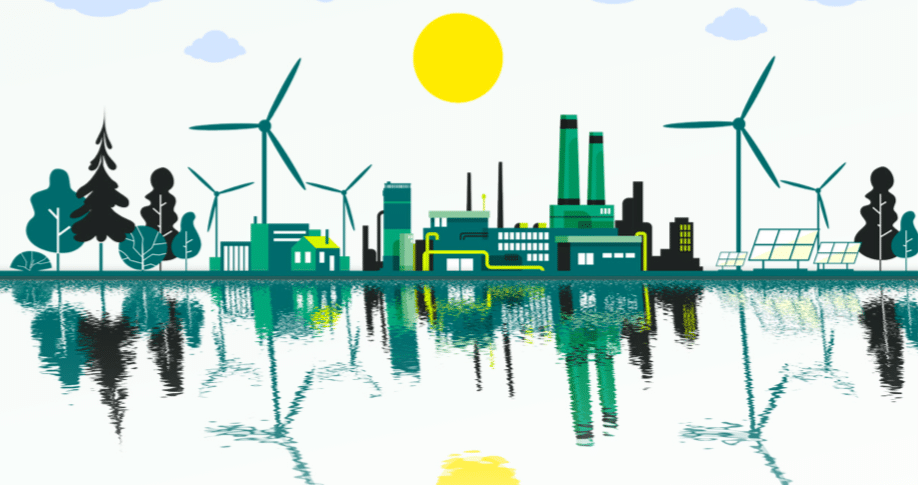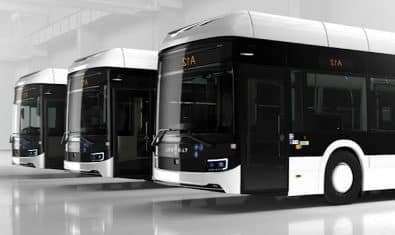The business world has entered a new era. In these times, the need for sustainability has become more important than ever. Companies are transforming their business models every day to gain a sustaining competitive advantage while meeting performance expectations.
Company leaders across the globe are formulating a broader and more systematic understanding of these challenges so that their companies can address them in a better way. In addition, sustainable business models work brilliantly to provide higher risk mitigation and flexibility.
To change our current trajectory in order to repair the damage to our planet, a cooperative effort on a global scale is required.
According to the Business and Sustainable Development Commission, meeting the Sustainable Development Goals can add 380 million jobs and $12 trillion to the global economy by 2030. To tip the scales in our favor, action is the only possible way forward, for there is much to lose otherwise.
Fortunately, many private sector companies have started to focus on the connection between profits and sustainability. About 69% of business executives demonstrate the integration of SDGs into their strategies.
On a national level, prominent companies such as Coca-Cola Pakistan are leading the dialogue on the implementation of SDG 6 (Clean Water & Sanitation) in their business strategies.
Pakistan, being the third most affected country by acute water shortage, is in dire need of corporate policies that focus on water efficiency. Such urgent measures will help curb the impending crisis of water shortage in the country.
The multinational consumer goods corporation, P&G, has released its new sustainability goals under the program Ambition 2030. These goals have one common purpose behind them: to inspire a positive impact on the environment while creating value for their consumers as a company.
P&G’s sustainability goals address two of the biggest challenges the world is collectively facing right now: increasing consumption and limited resources.
Steps such as the introduction of 100% reusable packaging material, reduction of carbon footprint, circular solutions based on regeneration and restoration, and the protection of forests are some of the vital steps P&G is taking to enable and inspire responsible consumption.
TCS Express & Logistics, SICPA Inks Pakistan, Artistic Milliners, Interloop Limited, JS Bank, Akzonobel Pakistan, Bulleh Shah Packaging, ACCA Pakistan, Fast Cables, and Unilever Pakistan are all on a united forefront to adopt global sustainable practices that enable these companies to offer sustainable solutions to their consumers.
To play its part in developing the ecosystem, Daraz, one of the biggest online shopping platforms in Pakistan, has taken multiple initiatives to help reduce its carbon footprint. Quite recently, the company announced its partnership with Robinhood Army.
The aim of this partnership is to reduce the ethical binning of food. The partnership works on the model where the canceled orders from dFresh will be given to the Robinhood Army who will further distribute them amongst those who need them.
Since the announcement of the partnership, Daraz has donated around 1,350+ kgs of fresh products that were generated from 170+ orders.
This effort between the two companies deals with one of the biggest challenges of leftover food disposal due to undelivered orders. Through this collaboration, Daraz aims to eliminate food wastage while supporting the communities with fresh products.
Another major journey that Daraz has embarked upon in order to improve the environment while promoting sustainability is the installation of solar panels at their Lahore warehouse facility.
The initiative is estimated to reduce the carbon footprint by 104 metric tons and is equivalent to planting 176 trees annually, emitting no greenhouse gases.
This crucial step by Daraz battles with the biggest challenge of environmental pollution that Pakistan is facing right now. Alarming concerns have been raised over the increasing population in the country, due to which the demand has caught multiple corporates’ attention to create a sustainable energy supply.
This implies optimized use of energy and reduction in the use of liquid energy i.e., petrol and diesel. With the core purpose of uplifting communities, Daraz has taken the responsibility to reduce its carbon footprint.
The e-commerce platform aims to move all its facilities towards solar energy so that a solid impact can be made in creating a sustainable ecosystem.
Taking its efforts of reducing carbon footprint one step ahead, Daraz has recently launched its new goal of introducing 100% recyclable packaging material. This shift from Virgin LDPE flyers to Recycled LDPE flyers is expected to reduce the Co2 emission by approximately 309 tons.
Daraz is actively working to ensure that all its vendors are manufacturing and using a standard quality Recycled Resin in manufacturing their flyers with a certificate of proof for the origin of the plastic scrap.
As transformation becomes a resounding theme for businesses globally, many companies have moved towards a model of sustainability. However, there is a dire need for more. The future of the global economy and sustainability majorly depends on how long we will take to move things into action.
If taken the right course at the right pace, companies have a lot to gain and a lot more to lose due to inaction. If long-term sustainable development is pursued on a global scale, companies will succeed in developing a holistic picture of opportunities and create a better world for generations to come.


























